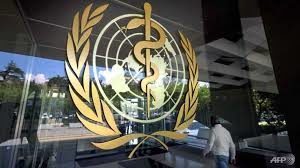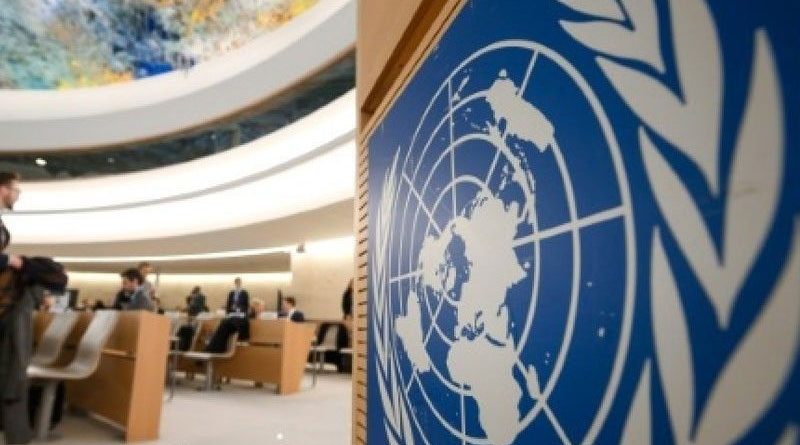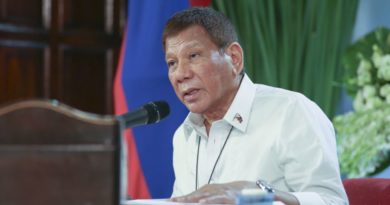COVID-19 PANDEMIC: UN launches campaign vs xenophobia for migrants
Tarek El-Sheikh, UN secretary general representative and resident coordinator to Kuwait, highlighted the efforts being made designed to safeguard the rights of foreign residents and the campaign designed to address the consequences of the COVID-19 pandemic.-STAR/ File
.
.
“The 2019 Plague” Day 220
.
.

MANILA, Philippines — The increase in xenophobic language directed toward migrants, including overseas Filipino workers (OFWs), has prompted a group of jurists, United Nations Office of the High Commissioner for Human Rights (UNOHCHR) and the Office of the Resident Coordinator to launch a media campaign countering xenophobic rhetoric falsely blaming the spread of coronavirus disease 2019 (COVID-19) on migrant workers.
Tarek El-Sheikh, UN secretary general representative and resident coordinator to Kuwait, highlighted the efforts being made designed to safeguard the rights of foreign residents and the campaign designed to address the consequences of the COVID-19 pandemic.
Meanwhile, another batch of OFWs displaced by the COVID-19 outbreak in Kuwait have been repatriated, bringing to 3,098 the total number of OFWs repatriated from the country since the pandemic began in March.
A majority of those who have been repatriated are Visa 18 (private sector) OFWs who either were at the end of their employment contracts, terminated from their positions or placed under a “no work, no pay” arrangement during the three-month-long COVID-19 lockdown in Kuwait.
The Kuwaiti resident coordinator said the media campaign that they have launched is designed to help authorities counter the problem, which they are beginning to see as a potential threat to a peaceful and stable society.
They also welcomed the televised speech on the subject by Kuwaiti Emir Sheikh Sabah Al-Ahmad Al-Jaber Al-Sabah, who emphasized the need to heal divisions and address misinformation.
“This is one example of the role that the UN is playing in Kuwait to address the consequences of the pandemic,” Tarek said.
Their response is into four main areas, according to the resident coordinator: helping to prepare the economy and society (for example, by strengthening supply chains, countering economic shocks and supporting small and medium-sized enterprises); working to protect vulnerable groups, including migrant workers; creating educational content different media, and addressing developmental and health issues.
“My message to the citizens of Kuwait, migrant workers living in the country, and everyone who is contributing to dealing with this pandemic, is that this is a time for solidarity, action, humanitarian support and respect for human rights,” he said.
“We cannot defeat this new enemy without unity, and agreement on a basic strategy, with the United Nations working hand in hand with government, the private sector and civil society. Let us reject hatred, turn to humanity and respect for human rights, and reiterate what the UN secretary general has said: the only way to survive is to work together,” he added.


.
The Philippine embassy in Kuwait mounted its second chartered Kuwait Airways flight on Wednesday, carrying 318 OFWs displaced by the COVID-19 pandemic.
The cost of the air tickets of about half of the Filipinos onboard the chartered repatriation flight was shouldered by their respective companies and employers, while the other half was paid by the embassy under the Department of Foreign Affairs’ Assistance to Nationals Fund.
The embassy reminded the Filipino community in Kuwait to signify their intent to be repatriated to the Philippines by answering the embassy’s ongoing online survey, which may be accessed through http://bit.ly/KuwaitPESurveyRepat.
Filipinos in Kuwait do not need to call the embassy’s hotlines or visit the embassy to register their names for repatriation, according to the public advisory released by the embassy on June 30.


.
“Due to physical distancing measures at the embassy, Filipinos in Kuwait (are discouraged) from visiting the embassy to inquire or request for their repatriation. The online survey already serves the purpose of receiving repatriation requests from Filipinos in Kuwait,” the advisory read.


SIGN UP TO RECEIVE OUR EMAIL
.
The most important news of the day about the ASEAN Countries and the world in one email: [email protected]
7.6.2020









